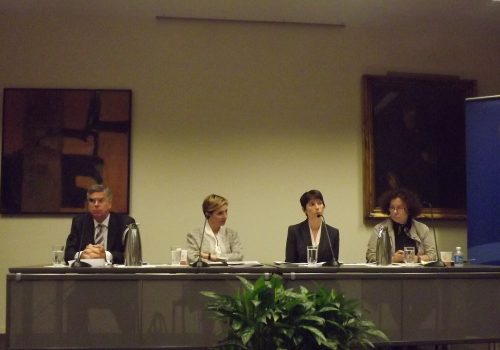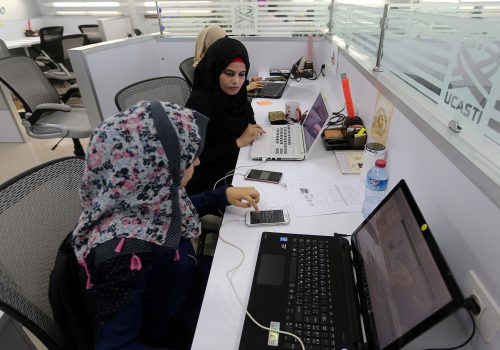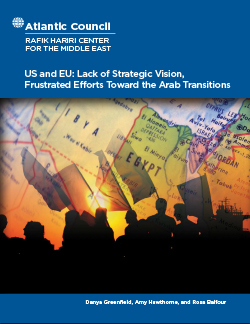The authors Danya Greenfield, deputy director of the Atlantic Council’s Rafik Hariri Center for the Middle East, and Rosa Balfour, head of the Europe in the World Program, European Policy Center, analyze the progress made to date, but conclude that despite ambitious rhetoric by policymakers, the response of the United States and the EU has not yet captured the potential of the moment or lived up to the high expectations that were set in the early days of these transitions.
As the 2011 wave of uprisings throughout the Middle East and North Africa prompted policymakers to rethink their approaches to this rapidly changing region, the United States and EU made pledges of financial assistance and political support for the Arab countries in transition. Many of these pledges were meant to stem economic collapse, capitalize on democratic openings and opportunities for growth, and provide incentives to guard against backsliding on reforms.
This report argues that while some specific initiatives are a step in the right direction, and some diplomatic changes deserve to be applauded, the response has fallen short of the high expectations that were set in the early days of these transitions.
To better capitalize on this historic opportunity, the authors present several concrete recommendations for policymakers on both sides of the Atlantic. Among the suggestions, Greenfield and Balfour suggest: more strategic, long-term coordination between US and EU policymakers, followed by more robust dialogues with Gulf Countries and international financial institutions; offering free trade agreements and further trade liberalization to incentivize reforms; enhancing US and EU public diplomacy strategies with the Arab publics to demonstrate a commitment to supporting democratic development; and visibly continuing robust support for democratic institution-building.



